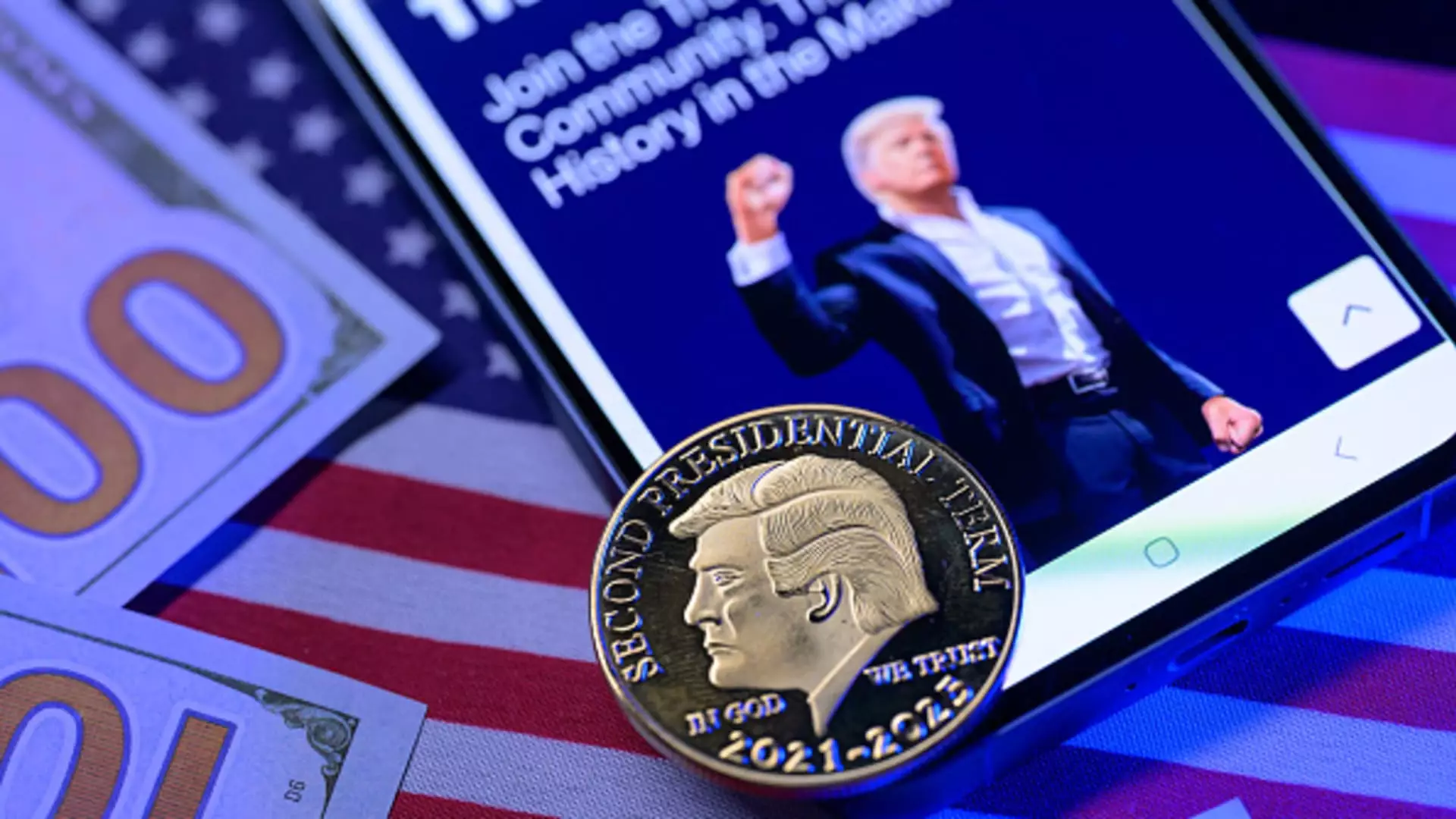The intersection of politics and cryptocurrency has never been more striking than in the lead-up to President Donald Trump’s exclusive dinner with the top $TRUMP meme coin holders. Scheduled for May 22 at his Virginia golf club, this gathering symbolizes the potent blend of celebrity culture, speculative finance, and the impermanence of digital assets. As the event approaches, critical aspects of this unique scenario raise unsettling questions not just about the participants but also about the broader implications of such financial fronts in our governances.
The Unseen Players in a Pseudonymous Realm
The allure of the crypto world lies in its nature: anonymity. The wave of wallets holding $TRUMP tokens represents both new investment opportunities and significant ethical dilemmas. With many of the top 220 holders potentially identified as foreign entities, one can’t help but ponder the motivations guiding their investments in a meme coin tethered to an American president. It’s alarming that a substantial number of these wallets are linked to global exchanges, indicating they likely belong to overseas buyers rather than U.S. citizens.
Justin Sun, the cryptocurrency mogul and founder of the Tron blockchain, stands out as a central figure in this narrative. With a staggering $75 million investment tied to the $TRUMP token, the very notion of foreign influence in our domestic political landscape suddenly rules the day. When foreign entrepreneurs stake significant amounts in projects so closely associated with U.S. governance, it ignites concerns regarding their underlying objectives. Are they simply seeking a slice of the American dream, or is there a more sinister agenda unfolding behind the veil of crypto licorice?
The Wild West of Wealth Distribution
Numbers tell a compelling story. The cryptocurrency environment surrounding $TRUMP is a study in extremes—560,376 wallets boasting realized gains of $5.2 billion juxtaposed against an even larger faction: 592,962 wallets suffering from losses totaling $3.9 billion. The results are telling; they point toward a wealth transfer where early adopters revel in their fortune while the vast majority are left grappling with regrets.
This volatility signifies something deeper about our society’s collective psyche, especially regarding finance. Cryptocurrencies have become a new form of lottery ticket, offering the highs of instant wealth yet yielding devastating lows for the unprepared or uninformed. In this chaotic arena, the promise of “WINNING!” that President Trump promotes becomes more than mere political rhetoric; it’s a siren call, beckoning Americans into a realm replete with both allure and traps.
The Corporate Seduction of Political Influence
Perhaps one of the most troubling dimensions of this crypto-induced spectacle is how entities are attempting to reshape political landscapes through financial influence. Companies like Freight Technologies, which purchased $2 million in $TRUMP tokens to purportedly influence U.S.-Mexico trade policies, exemplify how the lines between commerce and governance are blurring. Here, capitalism intersects with potential illegitimacy, raising alarms about the integrity of the political system itself.
As Sen. Richard Blumenthal rightly pointed out, this creates pathways for foreign interests to gain undue influence over U.S. policy-making processes. Allowing corporations to leverage such investments to gain access to presidential circles fosters an environment ripe for corruption and manipulation. Underneath the guise of innovation and investment lies the compelling reality that these money-driven quests for influence could have far-reaching consequences.
The Fluctuating Fortunes of Fame
The rise and fall of the $TRUMP token encapsulate the unpredictable nature of meme coins fueled by social media hype. Initially launched around January, it boasted a mind-blowing market cap of $15 billion before crashing dramatically. After a brief resurgence in April—significant yet fleeting—following the announcement of the much-anticipated dinner, it plummeted once again. This cycle of extreme volatility reveals the dangers of speculation, where fortunes can vanish as quickly as they materialize.
Yet in following the Twitter-fueled fervor surrounding such tokens, one questions the integrity of those rising to the top. Do we, as a society, want to commodify politics to such a degree that financial transactions dictate political engagement? The mere existence of the $TRUMP token, controlled substantially by the Trump Organization, epitomizes the unsettling yet fascinating reality that financial success can overshadow the very essence of democratic principles.
Ultimately, as the dinner approaches and the buzz intensifies, the spotlight must remain on the commodification of democracy through cryptocurrencies. Each meme coin and its holders must be scrutinized more closely than the previous, for every unlikely dinner guest may just hold a key to understanding the next chapter in the unfolding saga of power and procurement in America.

